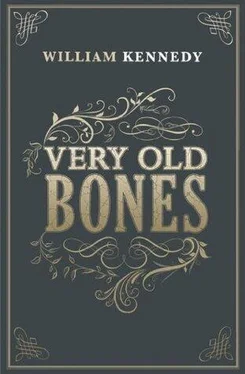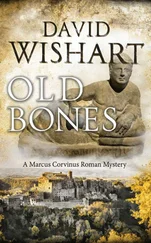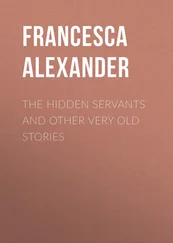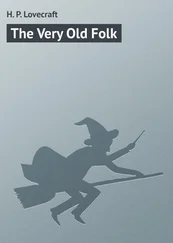“The family.”
It began with that; then I called Peg to get a lawyer, for she had legal contacts I lacked. Enter Roger Dailey, perennial eligible bachelor, three-handicap golfer at Wolfert’s Roost Country Club, a junior partner in one of the city’s best law firms, member of an old Irish family with links to Arbor Hill when it was the neighborhood of the lumber barons and other millionaires. I talked him into coming to the house to see Peter, then left them alone. That was a month ago, and now here he was in his creamy Palm Beach suit, bringing us legal tidings.
I hadn’t invited Giselle, for I’d evolved into thinking we were all but finished. But Peter took the matter out of my hands and invited her himself, which fixed the day of the event. It then fell to me to round up the others, which was a problem mainly with Roger, because today’s visit cut into his golf schedule (the rain would have canceled it in any case), and with Billy, who, as we all knew, loathed this house. But I got around everything and here we were, wondering what was about to happen, imagining what was in Peter’s mind, imagining Peter.
“You have the goods, Roger?” Peter asked.
“I do,” said Roger, taking a document from the legal-sized envelope he’d brought with him.
“Then let’s not drag it out, just go ahead and read it.”
“This arrangement isn’t unheard of, but it’s a bit unorthodox,” Roger began. “Then again we shouldn’t expect conformity from a major artist like Peter Phelan, whose last will and testament I’m about to read to you. Peter has decided its provisions should be made public not posthumously but today, here and now.” And then Roger read Peter’s ideas translated into legalese:
“Because money has never been a source of anxiety in me, and because the pursuit of money was never what this family was about, I, Peter Joseph Phelan, have chosen to divide my modest, newfound wealth among my siblings, and the heirs of my siblings, for I do believe that my career turn toward financial reward and artistic recognition, which, however belated, has made me feel blessed with good fortune, has been a consequence of my knowledge of this family. And because I further believe that out of the collective evil to which so many members of this family have been heir, heiress, and victim (the scope of which I have only in very late years begun to understand) there can come some collective good, and because one known form of good is the easing of the financial woe that periodically besets us all, I therefore make the following bequests:
“To my brother, Charles Edward Phelan, the sum of eleven thousand five hundred dollars;
“To my sister, Mary Kathleen Phelan, the sum of eleven thousand five hundred dollars;
“To my nephew, William Francis Phelan, the son of my late brother Francis Aloysius Phelan, the sum of five thousand seven hundred and fifty dollars;
“To my niece, Margaret Mary Phelan, the daughter of my late brother Francis Aloysius Phelan, the sum of five thousand seven hundred and fifty dollars;
“To my former concubine, Claire Theresa Purcell, in acknowledgment of two reasonably good years, and two decades of thoroughly unsatisfactory relationships, the sum of two dollars;
“Further, concerning Orson Michael Purcell, my unacknowledged son by Claire Theresa Purcell, I do now fully and publicly acknowledge him as my true and only son, and appoint him the sole benefactor and executor of the remainder of my estate, after the bequests specified in this will have been distributed, and do invest him also with artistic and financial control over the future of all forty-seven finished, unsold paintings of mine, thirty-six other unfinished works of mine, and any new works I may undertake before my death, all profits from any sale or exhibition of these works, or any other of my worldly goods, holdings, or inheritances, to accrue to Orson alone, provided that he legally change his name to Orson Michael Phelan, and that he thereafter remarry, forthwith, his present wife, Giselle Marais Purcell, to insure that her unborn child of this moment, July the twenty-sixth, nineteen hundred and fifty-eight, will legally bear the Phelan name; and that if this issue be not a male child, that Orson pursue yet again the conception of a male heir with his wife of the instant, or, if that marriage is terminated, with a subsequent legal spouse, in order to insure at least the possibility of the Phelan name continuing beyond Orson’s own demise, this latter contingent action thus ending his responsibility for the Phelan line; for more than this no man should be asked to do.”
In the silence that followed the reading we glanced where we had to, me at Giselle, all the others at Peter; and Peg spoke up first to say, “Uncle Peter, thank you, thank you. I don’t think you know how much this will mean to our family.” Fifteen hundred down: easy as apple pie.
Molly walked over to Peter and kissed him on the cheek, said, “You have a good heart,” and went back to the kitchen tying on her apron. Billy stared at Peter with what I took to be puzzlement: Why is this guy givin’ money away? And why to me? But Billy made no statement except with his eyes.
I caught Peter’s eye and I nodded at him. And then he nodded.
Giselle stared at me, and in her look I saw more comprehension of what the will had said about us than I myself possessed at this moment; for while I’d known Peter planned to dispense money, and suspected I would get a bit of it, no thought of a paternity clause ever crossed my mind. I believed he would die without acknowledging me, and I had decided long ago that that was all right. Who needed legitimacy? The answer again was Peter. He needed it now that he was going public. He needed to tidy up his life, organize his death.
He had not expected the professional and financial success that was now coming to him at such a late hour. But it happened that a few perspicacious gallery owners and museum people began to see that his work, despite the varied modes and genres in which he had painted and drawn, had about it a prevailing quality that now seemed to be singular. Recognition came to him as does the fixative an artist acquires at death: No more innovation for you, my friend; we read you at last. This handful of influential Peter-watchers saw him neither as sectarian of any art movement of his era, nor as yet another gadfly among trends. Now they saw an artist who had vaulted beyond his matrix, fused the surreal, the natural, the abstract, and the figurative, and produced an oeuvre that was as cumulatively coherent as his motivation had been in creating the work.
Peter Phelan, obsessive artist of Colonie Street, subsumed in the history of his family, all but smothered under his ancestors’ blanket of time, had willfully engaged it all, transformed history into art, being impelled to create, and purely, what Picasso had called “convincing lies”; for Peter believed that these lies would stand as a fierce array of at least partial Phelan truths — not moral truths, but truths of significant motion: the arresting of the natural world at an instant of kinetic and fantastic revelation; the wisdom of Lizzie’s lofted leg in her dance with the shadows; the wizardly acceptance of chicken droppings by the demented Crip Devlin; the madly collective flailing of arms in Banishing the Demons.
This latter painting, the largest in the Malachi Suite , treats of the collective Peter mentioned in his will. By the light of an oil lamp, a candle, and a fire in the McIlhenny hearth (shadowed homage to La Tour), the players in the Malachi drama are enacting their contrary rituals: Kathryn Phelan (abundantly pregnant with Peter, the arriving artist) is sitting on the bed in the background, holding the hand of the beset Lizzie, who is supine in her calico chemise, blue flannel nightgown, and black stockings, her hair splayed wildly on her pillow; and the Malachi minions — the wizard Crip Devlin; Crip’s daughter, Mab (the image of the child who led me to Francis at the railroad tracks); Lizzie’s father, old Ned Cronin, who badly needed a shave; Malachi’s ancient cousin, Minnie Dorgan, with her dropsical stomach, and her stupid son, Colm, whose hair was a nest of cowlicks; and, central to it all, Malachi himself, with his wild curls and his wilder eyes, all these clustered figures pushing upward and outward with their arms (Colm gripping a lighted candle in his right hand and thrusting upward with his left), ridding the house of any demons that may have been summoned by the archdemon that Lizzie had become. The entrance door and two windows of the house are open to the night, and those errant demons, who well know that this room is inimical to their kind, are surely flying fearfully out and away, back to their covens of hellish darkness.
Читать дальше












